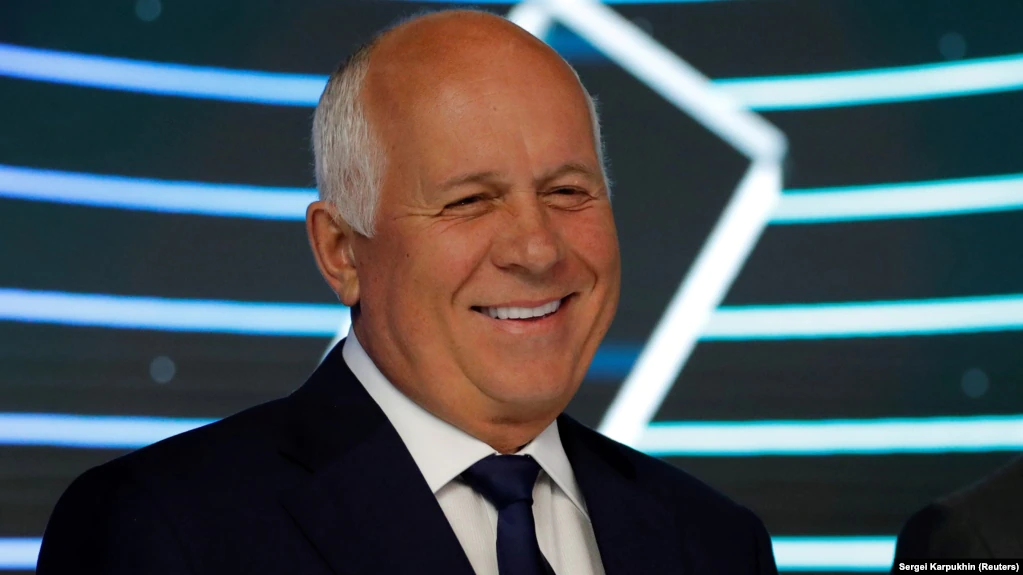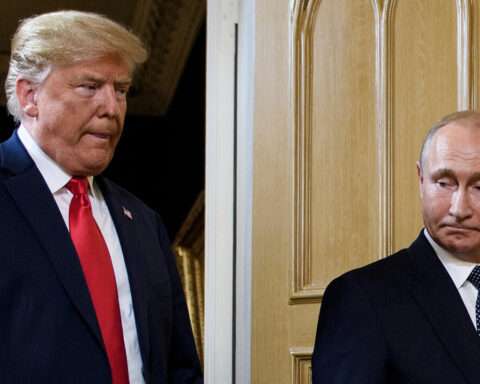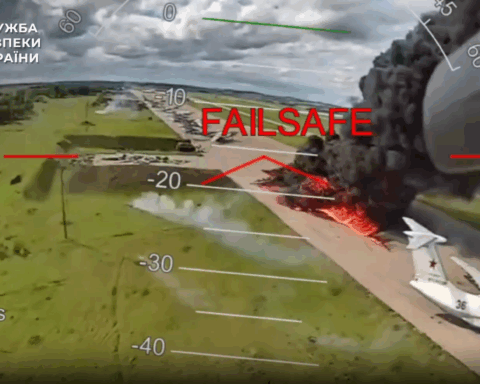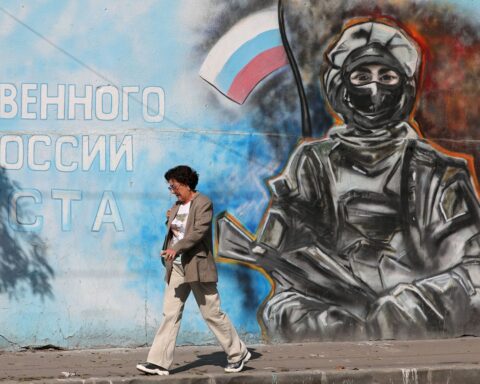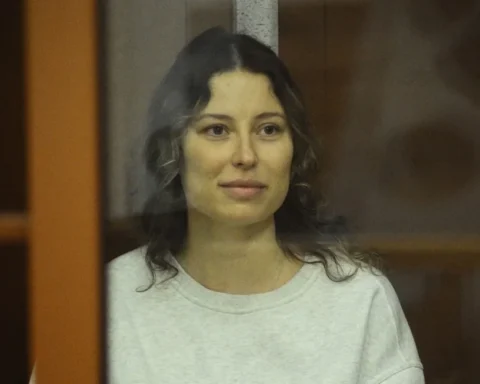His face can be seen in grainy photos of Russian President Vladimir Putin in his Dresden days as a Soviet KGB officer, and his name — Sergei Chemezov — has featured prominently in a growing number of far more recent reports pointing to potential corruption.
When the Panama Papers leaked in 2016, it was revealed that Chemezov’s son, Stanislav, owned an offshore company that was benefiting from the construction of a $550 million national fiber-optic superhighway by Rostec, the state-owned conglomerate that Putin appointed Chemezov, one of his oldest and closest associates, to head in 2007.
In 2019, the Organized Crime and Corruption Reporting Project, as part of its ongoing Russian Money Laundromat series, published allegations that Chemezov’s relatives and close Rostec associates own luxury villas in an exclusive Spanish enclave called S’Agaro worth tens of millions of euros.
The same year, opposition politician and anti-corruption activist Aleksei Navalny alleged that Chemezov’s wife was the registered owner of a 1,400-square-meter, two-floor apartment in the Hotel Moskva, across a square from the Kremlin, worth an estimated 5 billion rubles ($69 million).
In response to the Navalny exposé, Chemezov told Russian news outlet RBC: “I do not accumulate wealth. I don’t stuff money in the corners. I don’t have yachts or airplanes.”
The new Pandora leak of some 12 million confidential financial files on offshore wealth kept in global tax havens seems to cast doubt on that assertion, however. One of the Russian chapters of the global scandal was information indicating that Chemezov’s stepdaughter, Anastasia Ignatova, owns an offshore company called Trident Trust that, in turn, owns an 85-meter luxury yacht called Valerie worth about $140 million. The Russian angles of the Pandora documents were analyzed by Istories, an investigative-journalism outfit that has been tarred as a “foreign agent” media organization by the Russian government.
The latest investigation also tied Chemezov’s relatives and associates to several more luxury villas in Spain. In all, the journalists estimated the foreign property tied to Chemezov by the Pandora leak to be worth about 22 billion rubles ($302 million).
Cloud Of Scandal
Despite the cloud of scandal that has surrounded Chemezov for years, he has been unaffected. So far, that would seem to be the case with Pandora as well. Kremlin spokesman Dmitry Peskov said on October 4 that “we haven’t seen any hidden wealth” in the reports.
“So far we haven’t seen anything in particular,” said Peskov, who himself has been the target of accusations of unexplained wealth. He asserted that the documents mostly expose poor financial regulations in the United States.
Rostec did not respond to requests for comment from Istories, and did not immediately reply to a request for comment from RFE/RL on October 4. When media reported the allegations in 2019 about the villas in Spain allegedly controlled by Chemezov’s relatives, he responded that he was “not responsible for them,” that they have their own business interests and earn profits from them.
Chemezov, 69, is a longtime insider in the political system created under Putin, which political scientist Karen Dawisha and others have dubbed “Putin’s kleptocracy.” A native of the Irkutsk region, he entered the KGB in the late 1970s. He worked on a scientific and technical espionage mission in Germany. During the 1980s, he lived in the same apartment building in Dresden, East Germany, as Putin and the two men became close.

Later, Chemezov was deputy director of a KGB-controlled trading association called Sovintersport, which managed the international appearances of Soviet athletes. American boxing promoter Lou Falcigno told The New York Times in 1989 that he was paying Sovintersport about $200,000 for each fight involving a Soviet boxer. According to other reports, Sovintersport was taking as much as 95 percent of the salaries paid to Soviet hockey players playing in the NHL.
During this same period, Chemezov became involved in the scandal-plagued oil and gas export firm Itera, which for many years largely controlled the export of Turkmen natural gas and made billions selling it to Russia’s Gazprom.
Chemezov’s wife, Yekaterina Iganatova, was a co-founder of Itera, and his son, Stanislav, worked there during the 2000s. The other co-founder, businessman Igor Makarov, was a former Soviet cyclist and later president of the Russian Cycling Federation. He and Chemezov were further connected through the sponsorship of the Katusha professional cycling team from 2009 to 2019 by Itera and Rostec.
Old Comrades
In 1996, Putin moved from the government of St. Petersburg to become deputy head of the administration of President Boris Yeltsin. As an outsider in Moscow, he began bolstering his position by bringing in old comrades, including Chemezov, whom he tapped to head the administration’s Department of Foreign Economic Relations — a position similar to the one Putin himself held in the city government in St. Petersburg.

From then on, Chemezov has occupied a string of foreign-trade positions with state companies including Promeksport, the arms dealer Rosoboroneksport, and then Rostec, which was called Russian Technologies until 2012.
Rostec is a sprawling defense and technology giant comprising more than 700 enterprises controlled by 14 holding companies. The conglomerate, and Chemezov personally, were both targeted by Western sanctions following Moscow’s 2014 seizure of Ukraine’s Crimea region and its stoking of a military conflict in parts of eastern Ukraine.
In 2007, as Putin’s second presidential term was coming to an end and he was searching for a “successor” — and eventually landing on Dmitry Medvedev, who kept the presidential seat warm until Putin returned for two more terms beginning in 2012 – some analysts named Chemezov as a possible candidate.


